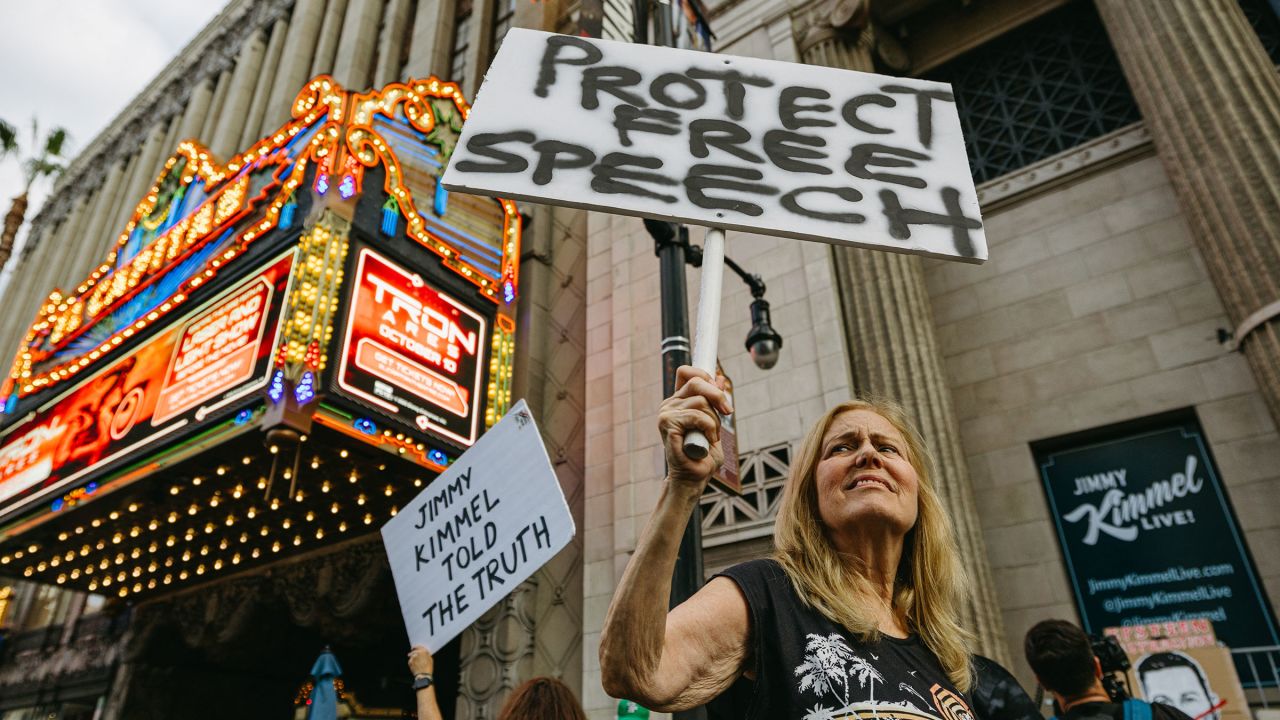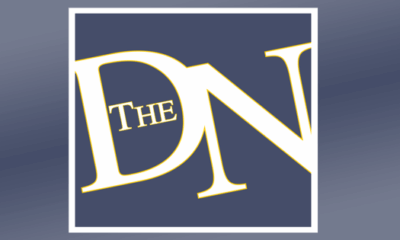Science
Media Censorship Concerns Arise After Kimmel’s Show Cancellation

The recent decision to take Jimmy Kimmel’s late-night talk show off the air has reignited discussions about media suppression, drawing parallels between this incident and similar actions in various countries. Critics highlight how such moves reflect a broader trend of anti-media sentiment, particularly reminiscent of tactics employed by political figures like President Donald Trump.
Many observers, including CNN’s Nathan Hodge, argue that the cancellation of Kimmel’s show represents more than just a programming change; it signals a troubling approach to media that limits dissenting voices. In the United States, this decision follows a pattern of escalating hostility towards the press, particularly from political leaders who often label unfavorable reporting as “fake news.”
Connections to Global Media Suppression
The comparisons extend beyond the United States, as Kimmel’s sidelining mirrors situations in countries known for their stringent control over media narratives. In places where government officials silence critical voices, the media landscape often suffers from significant restrictions, leaving the public with limited access to diverse viewpoints. This scenario raises alarm bells for advocates of press freedom, who see Kimmel’s situation as a potential precursor to increased censorship.
Moreover, the phenomenon is not isolated. Similar instances have been observed in various nations, where talk shows or other media platforms have faced shutdowns or restrictions in response to criticism of political leaders. The implications of such actions can be profound, affecting not only entertainers but also journalists and public discourse.
Impact on Public Discourse and Society
The cancellation of Kimmel’s show has sparked conversations about the role of media in democracy. Supporters of press freedom argue that a vibrant media landscape is essential for holding leaders accountable and fostering informed public dialogue. As the landscape evolves, the potential for a chilling effect on creativity and comedy remains a concern, particularly in a climate where political backlash can lead to consequences for those who dare to speak out.
While Kimmel’s show is just one example, it serves as a reflection of larger trends in media suppression. The conversation surrounding this event emphasizes the importance of safeguarding free expression, especially in an age where entertainment often intersects with political commentary.
As discussions continue, the broader implications for media and society will likely remain at the forefront of conversations about freedom of speech and the rights of individuals to express dissenting opinions. The need for vigilance in protecting these freedoms has never been more critical, especially as public figures and institutions grapple with the responsibilities that come with influence and power.
-

 Technology4 months ago
Technology4 months agoDiscover the Top 10 Calorie Counting Apps of 2025
-

 Health2 months ago
Health2 months agoBella Hadid Shares Health Update After Treatment for Lyme Disease
-

 Health3 months ago
Health3 months agoErin Bates Shares Recovery Update Following Sepsis Complications
-

 Technology3 weeks ago
Technology3 weeks agoDiscover 2025’s Top GPUs for Exceptional 4K Gaming Performance
-

 Technology2 months ago
Technology2 months agoElectric Moto Influencer Surronster Arrested in Tijuana
-

 Technology4 months ago
Technology4 months agoDiscover How to Reverse Image Search Using ChatGPT Effortlessly
-

 Technology4 months ago
Technology4 months agoMeta Initiates $60B AI Data Center Expansion, Starting in Ohio
-

 Technology4 months ago
Technology4 months agoRecovering a Suspended TikTok Account: A Step-by-Step Guide
-

 Health4 months ago
Health4 months agoTested: Rab Firewall Mountain Jacket Survives Harsh Conditions
-

 Lifestyle4 months ago
Lifestyle4 months agoBelton Family Reunites After Daughter Survives Hill Country Floods
-

 Technology3 months ago
Technology3 months agoUncovering the Top Five Most Challenging Motorcycles to Ride
-

 Technology4 weeks ago
Technology4 weeks agoDiscover the Best Wireless Earbuds for Every Lifestyle





















